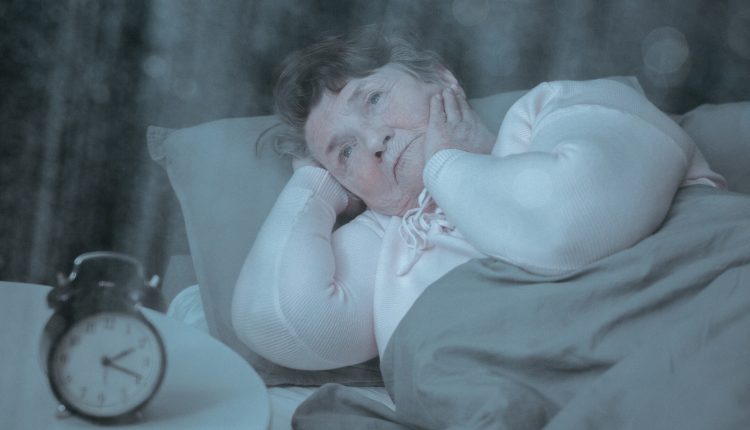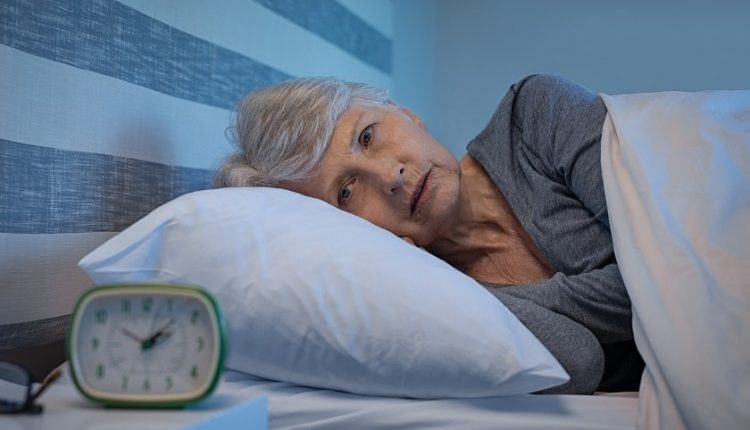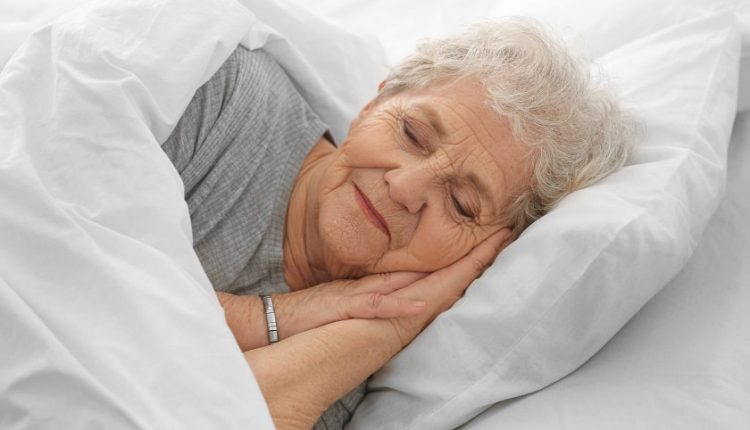
Alzheimer’s and Sleep: What’s the Connection?
No matter how much we want to sleep or how hard we try to do so, we’ve all experienced those awful sleepless nights. Regardless of how many times we’ve tossed and turned or drank a glass of water, it was impossible to invite our eyes to sleep. After a sleepless night tossing and turning, you know how you will feel the following day – cranky, tired, and out of sorts. But, the consequences of not getting the recommended 7 to 9 hours of sleep a night go beyond feeling irritable and dizzy. Sleep deprivation can lead to many health problems, including cognitive dysfunction and diabetes. However, recent research suggests that sleep disorders may also play a role in Alzheimer’s disease. Read on to learn more about common sleep disorders in seniors and ways to prevent Alzheimer’s disease.

Contents
Different Types of Sleep Disorders
Below are the common types of sleeping disorders:
1. Light Sleep Disorders
The “Rapid Eye Movement Sleep Behaviour Disorder” (RBD) causes people to act out their dreams by moving or talking in their sleep. Light sleep disorders seem to be particularly associated with Dementia with Lewy Bodies and Parkinson’s disease, and some studies suggest they are an early indicator of these conditions, particularly in older men.
2. Sleep-Wake Cycle Disorders
Each day, the body goes through the sleep-wake cycle, ensuring that we are active and sleepy at night. When the cycle alters, it can disrupt sleep patterns. Symptoms include difficulty falling asleep and staying asleep at night, drowsiness during the day, and napping.
Scientists believe these sleep disturbances are associated with Dementia, most notably Alzheimer’s.
Some researchers think that the link between sleep-wake cycles and Alzheimer’s disease is due to the high level of the protein amyloid in the brain, the hallmark of Alzheimer’s disease. Studies have shown that high levels of amyloid in the brain have been associated with insomnia and poor sleep quality in people with Alzheimer’s.
Insomnia and Alzheimer’s Risk
Insomnia, a type of sleep-wake cycle disorder, is a common disorder that can make it hard to fall and stay asleep or cause you to wake up too early and not get back to sleep.
A recent study analyzed 70 adults with a mean age of 76 with no evidence of Dementia. Participants were asked to self-report their sleep patterns, including the hours they slept each night, how often they woke up during the night, and whether they had trouble falling asleep. The researchers used various brain imaging techniques to measure beta-amyloid deposition in the brain.
It was found that shorter overall nights’ sleep duration and poor sleep quality were associated with increased beta-amyloid buildup in the brain.
However, it is also possible that the changes to sleep-wake cycles are caused by other changes in the brain and do not affect Alzheimer’s risk. More research is needed to understand the mechanisms linking sleep-wake cycles and Alzheimer’s.

3. Sleep Apnea Disorder
Sleep-disordered breathing, also called sleep apnea disorder, occurs when someone has difficulty breathing while asleep. In such cases, obstructions in the airway make breathing difficult.
Sleep-disordered breathing can affect people of all ages, but it is most common in older people and people with obesity. Some research has suggested that people affected by sleep-disordered breathing may be at higher risk of cognitive decline or impairment. The reason is that sleep-disordered breathing may cause damage to the brain due to changes in oxygen and carbon dioxide levels in the blood. It may also change the flow of blood to the brain.
Sleep Apnea Disorder and Alzheimer’s Risk
In recent research, the scientists recruited 127 retired men and women over 65. Participants completed questionnaires about their cognitive function and sleep quality. Each participant slept with a portable home device that recorded their sleep quality and breathing.
Based on the frequency and duration of drops in nasal pressure, the researchers were able to categorize the participants into two categories:
1. Those with sleep-disordered breathing
2. Those without sleep-disordered breathing
Additionally, the study team tested the participants’ memory, cognitive functions, and brain glucose metabolism. The participants underwent MRI and PET scans, both used for brain imaging.
The results showed that sleep apnea was found in approximately 75% of study participants, and their brains accumulated more amyloid protein than people who slept uninterrupted.
The accumulation of proteins in the brain is characteristic of Alzheimer’s disease. In addition, some brain areas associated with Alzheimer’s disease showed significant increases in gray matter volume and neuronal activity. These observations suggest inflammation in this region of the brain.
A Cause or A Symptom?
The relationship between sleep and Dementia is a complicated one. There are different types of Dementia associated with varying sleep problems.
It is also unclear whether poor sleep causes or exacerbates Dementia or if Dementia leads to poor sleep. There is a possibility that both of these theories are true and that the relationship is circular. Furthermore, it is unclear what mechanisms underlie these interactions.
Further research is needed to understand this relationship, especially studies that observe large groups of affected individuals over a long period.
Supporting a Good Night’s Sleep

Sleep disturbances can take a toll on you and the person with Dementia. To promote better sleep:
- Treat underlying conditions. In some cases, anxiety, depression or leg syndrome can cause sleep problems in seniors.
- Establish a routine. Maintain regular eating, waking, and sleeping times.
- Avoid stimulants. Caffeine, alcohol, and nicotine can interfere with sleep. Avoid these substances use and TV during wakefulness at night. Read more about better sleep quality through nutrition.
- Encourage physical activity. Walking and other physical activities can help you sleep better at night. Learn more about the seven easy-to-follow exercises that help you sleep like a baby!
- Limit daytime sleep. Discourage afternoon napping.
- Set a peaceful mood in the evening. Help the person relax by playing soothing music. A comfortable bedroom temperature can help a person with dementia sleep well.
- Manage medications. Some antidepressant medications can cause insomnia, including bupropion and venlafaxine. Donepezil can improve cognitive and behavioural symptoms but can also cause insomnia in patients with Alzheimer’s. Talk to the doctor if the person with Dementia is taking these medications. It is often helpful to administer the medication no later than the evening meal.
- Provide proper light. Dementia patients with sleep-wake cycle disturbances can benefit from bright light therapy in the evening. Having adequate lighting at night can also help reduce the amount of agitation that may occur in dark surroundings.
When a Loved One Wakes During the Night:
Final Words
Although there is still no specific cure for Alzheimer’s disease, and the connection between sleep and Dementia is complicated, scientists believe that promoting healthy sleep may help reduce and prevent the risk of Alzheimer’s disease. As seniors’ sleep problems can be treated later, interventions that improve or maintain healthy sleep in older adults may help prevent or slow Alzheimer’s progression.
My mother was diagnosed with Alzheimer’s several years ago, and one of the earliest symptoms we noticed was disrupted sleep patterns. She would often wake up in the middle of the night, wander around the house, or have trouble falling asleep altogether. As the disease progressed, her sleep patterns became even more erratic, and she would sometimes go days without sleeping properly.
It’s interesting to learn from this article that disrupted sleep can contribute to the development of Alzheimer’s and that there may be a vicious cycle at play where the disease causes sleep problems, exacerbating the condition. Thanks for this informative article!